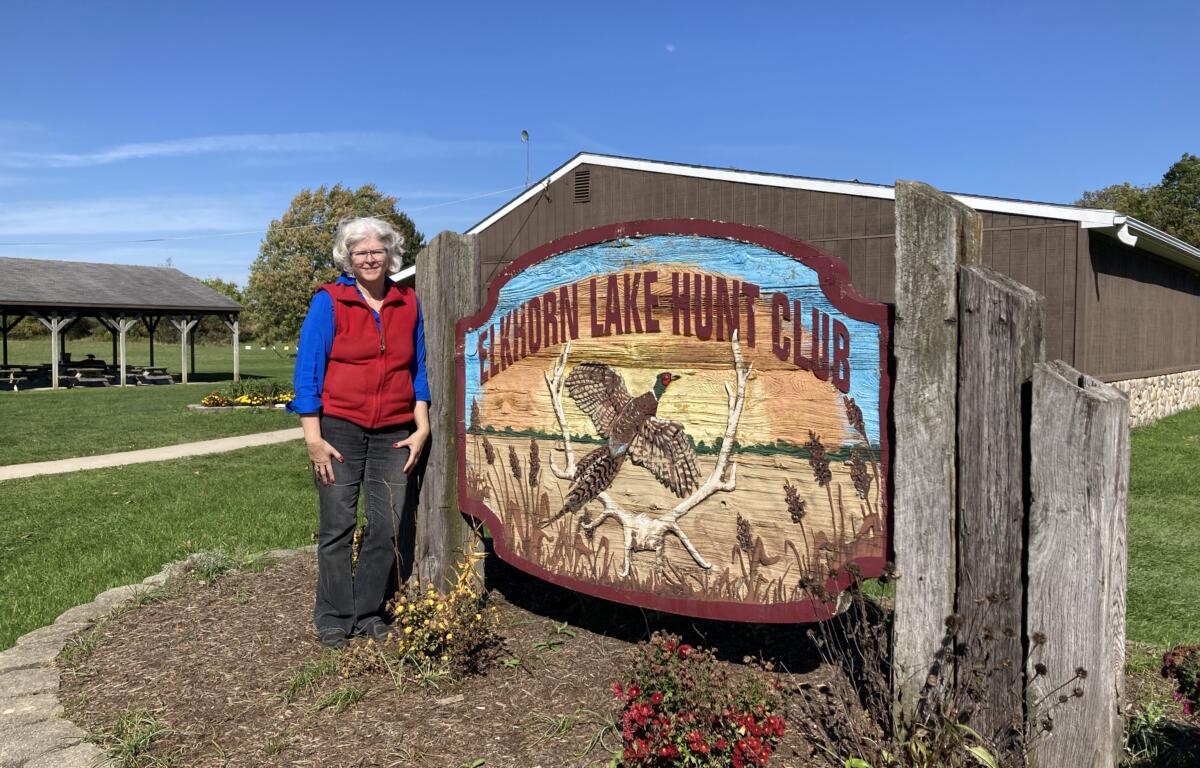
BUCYRUS–Pheasants are the name of the “game” in Crawford County.
For decades, millions of the birds have been hatched at pheasant farms throughout the county, only to be released in time for Ohio’s hunting season or shipped to hunt clubs in other parts of the country.
It’s a year-round operation.

“It’s either raising the birds, hunting the birds, or hatching them all year long,” said Peg Ballou, who, along with her husband, Sam, operate Elkhorn Farms & Hatchery on Klopfenstein Road northeast of Bucyrus. “It’s in a sense multigenerational.”
Elkhorn’s main farm, as well as its other two locations in nearby Sulphur Springs and on St. Rt. 96, span more than 400 acres, Ballou said. A lake, pavilion, guest house, and hunt club – which is open to the public – are also located on the family-run property.
Like other nearby pheasant farms and clubs, Elkhorn offers “game bird hunting at its best” – hunting fields for ring-neck pheasants, quail, Hungarian, Chukar partridges, and even an automated European course that starts out with a 50-bird round of sporting clays.

Gunfire fills the air on a fall day at Elkhorn Farms, where the hatchery – the only underground facility in the country – uses geothermal heat exchange in its incubator to produce more than 550,000 chicks a year Ballou said, making it one of the top 10 farms in the U.S.
“There’s a lot of birds that go through here,” said Ballou, who regularly cooks the lean meat. “What we don’t harvest end up becoming a breeder flock to reestablish the population. Pheasants need grasslands to survive. That’s part of the push to have hunting clubs, hunting preserves.”
Elkhorn’s adult birds – at a ratio of 8,000 females to 1,000 males – live in outside pens equipped with automatic feeders and a constant water supply, she said. Once the eggs are laid, they’re gathered, cleaned, disinfected, and “racked,” then taken to the incubators.

Hatching season typically runs from March through July, Ballou said. Once hatched, the babies move on to the brooder barns until they’re finally ready for the outdoor “flight” pens. They learn to fly quickly and grow into adults by the time they’re eight to 12 weeks old, she said.
Elkhorn employees transport pheasants all over the country, Ballou said, especially to Michigan, Alabama, Georgia, North Carolina, and Massachusetts. The chicks, however, have to be mailed within two days, a food sack in tow, since they can only survive up to 72 hours, she said.
The local operation has a long history, which dates back to 1962 when Charles Baehr, an avid hunter, founded Elkhorn Lake Shooting Park. He and his wife, Jeannette, started in a small garage, raising about 25,000 pheasants a year, and eventually expanded into two larger barns on the property.

Elkhorn Farms was established when Baehr and Ballou became a partner in 1985. They built the hatchery in 1987, which considerably boosted production.
The Ballous officially took over the operation in 2003, which they now run with their two of their six children, Ruth Malpas and Samuel Ballou.
The facility offers guided hunts and half-day hunts with a dog and handler, as well as special events throughout the year. Reservations are required, although the sporting clays course is normally open.
Birds can be plucked on the premises, but oven-ready birds are also available.
Ballou said she and her husband, who live on the property, will forever be grateful to the Baehrs for the opportunity that not only became their passion but also their livelihood over the years.










